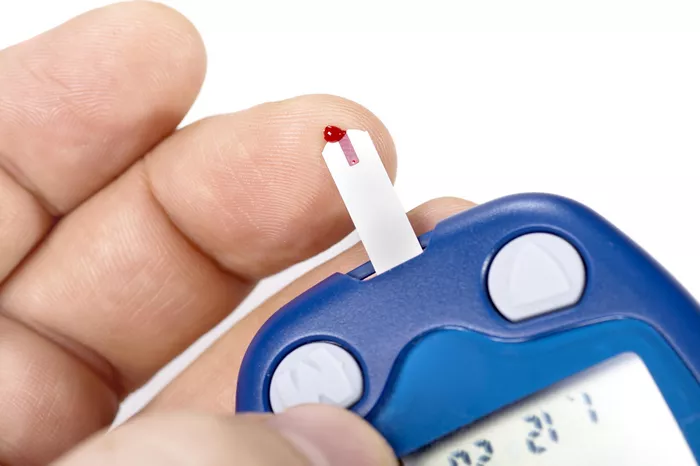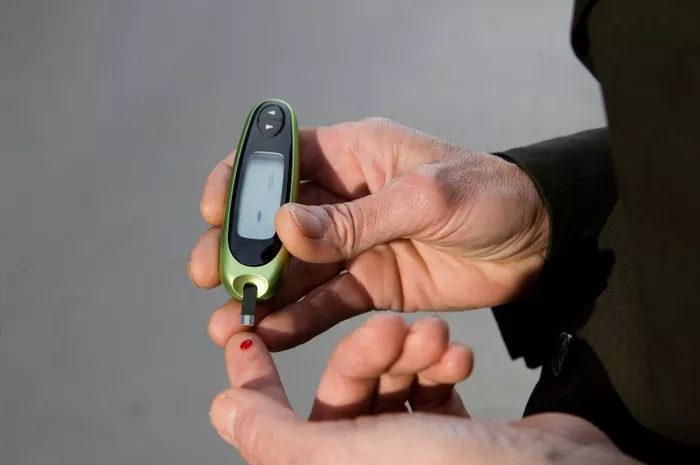Understanding diabetes management involves several important factors, one of which is the A1C test. This test measures the average blood glucose levels over the past two to three months. It is a crucial tool for diagnosing and monitoring diabetes. This article delves into what A1C levels indicate diabetes, the importance of the test, how it is performed, and its implications for diabetes management.
Understanding A1C: What Is It?
The A1C test, also known as the hemoglobin A1C or glycosylated hemoglobin test, reflects the average blood sugar levels over a period of time. Hemoglobin is a protein in red blood cells that carries oxygen. When glucose enters the bloodstream, it attaches to hemoglobin. The more glucose present in the blood, the higher the A1C level will be.
How Is A1C Measured?
The A1C level is reported as a percentage. It indicates the proportion of hemoglobin that has glucose attached. For example, an A1C level of 6% means that 6% of the hemoglobin in the blood is coated with glucose. The test can be performed in a doctor’s office or laboratory, and it requires only a small blood sample.
Why Is A1C Important?
The A1C test is important for several reasons:
Diagnosis of Diabetes: A1C levels help diagnose diabetes and prediabetes. They provide a broader picture of blood sugar levels than a single blood glucose test.
Monitoring Treatment: The test helps healthcare providers assess how well diabetes treatment is working. Regular monitoring can guide necessary adjustments in medication, diet, and exercise.
Predicting Complications: Higher A1C levels over time can indicate an increased risk of diabetes-related complications, such as heart disease, kidney damage, and nerve problems.
What Do A1C Levels Mean?
A1C levels can help categorize individuals into different groups concerning diabetes risk. The following ranges are typically used:
Normal A1C Levels
Below 5.7%: This level is considered normal and indicates that blood sugar levels are within a healthy range.
Prediabetes A1C Levels
5.7% to 6.4%: This range indicates prediabetes. Individuals with A1C levels in this category are at higher risk of developing type 2 diabetes if lifestyle changes are not made.
Diabetes A1C Levels
6.5% or higher: An A1C level of 6.5% or higher confirms a diagnosis of diabetes. This level indicates chronic high blood sugar levels, which can lead to serious health complications.
Interpretation of A1C Levels
It’s important to note that the A1C test is just one tool in diagnosing and managing diabetes. Other factors, such as symptoms and additional tests, may also be considered.
Understanding the Implications of A1C Levels
A1C and Type 1 Diabetes
For individuals with type 1 diabetes, maintaining an A1C level below 7% is often a target recommended by healthcare providers. This level helps reduce the risk of diabetes-related complications. However, the target may vary based on individual circumstances, such as age, duration of diabetes, and presence of other health issues.
A1C and Type 2 Diabetes
In type 2 diabetes, the A1C target is also generally set below 7%. Achieving this goal can help prevent complications like heart disease, neuropathy, and retinopathy. However, some individuals may need more stringent control, while others may benefit from a more relaxed target.
Importance of Individualized Goals
Each individual with diabetes is different, and A1C targets should be personalized. Factors to consider include:
Age: Older adults may have a higher target due to the risk of hypoglycemia.
Duration of Diabetes: Long-term diabetes may lead to complications, making tighter control necessary.
Overall Health: Coexisting medical conditions can influence the target A1C level.
How to Lower A1C Levels
If your A1C level indicates diabetes or prediabetes, several strategies can help lower it:
Dietary Changes
Focus on Whole Foods: Eating whole grains, lean proteins, healthy fats, fruits, and vegetables can help manage blood sugar levels.
Control Portion Sizes: Being mindful of portion sizes can prevent overeating and help maintain stable blood glucose levels.
Limit Sugars and Refined Carbs: Reducing intake of sugary foods and drinks, as well as refined carbohydrates, can prevent spikes in blood sugar.
Regular Physical Activity
Aim for Regular Exercise: Engaging in regular physical activity helps the body use insulin more effectively. Aim for at least 150 minutes of moderate aerobic activity each week.
Incorporate Strength Training: Resistance training can improve insulin sensitivity and help with weight management.
Weight Management
Achieve a Healthy Weight: Losing even a small percentage of body weight can have a significant impact on A1C levels and overall diabetes management.
Medication Management
Consult with Healthcare Providers: If lifestyle changes alone are not sufficient, medications may be necessary to help manage blood glucose levels. Regular consultations with healthcare providers are essential for determining the best treatment plan.
Regular Monitoring and Follow-Up
Monitoring A1C levels regularly is critical for effective diabetes management. Most healthcare providers recommend that individuals with diabetes have their A1C tested at least twice a year, or more frequently if their treatment has changed or if they are not meeting their targets.
How Often Should You Get Tested?
Twice a Year: For those who are meeting their targets and have stable blood sugar levels.
Four Times a Year: For individuals whose treatment has changed or who are not meeting their goals.
Conclusion
The A1C test is a vital tool in the diagnosis and management of diabetes. Understanding what A1C levels indicate can empower individuals to take control of their health. A normal A1C level indicates good blood sugar control, while higher levels suggest the presence of diabetes or prediabetes.
By focusing on a balanced diet, regular physical activity, weight management, and medication adherence, individuals can work towards lowering their A1C levels and reducing the risk of complications. Regular monitoring and consultation with healthcare providers are essential for successful diabetes management.
For anyone concerned about their A1C levels or diabetes risk, it is crucial to seek advice from a healthcare professional. They can provide personalized recommendations and support in managing diabetes effectively.
Related topics:
What Instrument is Used to Measure Blood Sugar Levels?



























